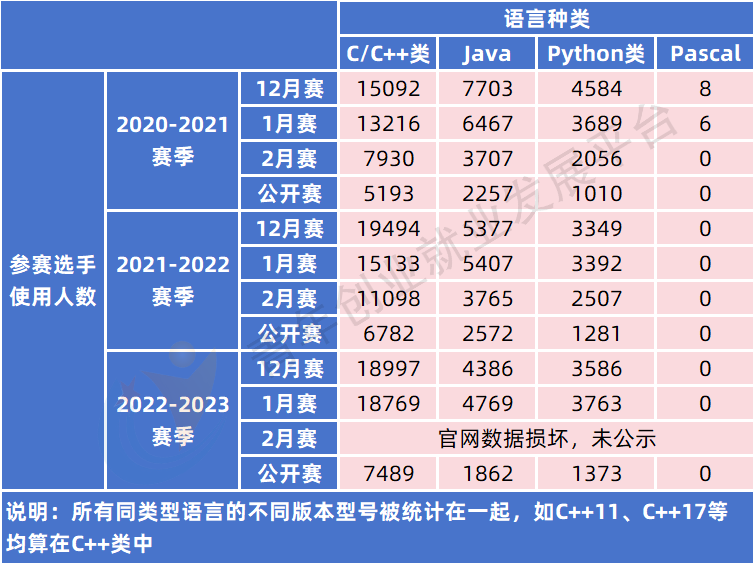又到了九月开学季,一大批怀揣着梦想的新生即将在美丽的校园中,开启他们缤纷多彩的大学生活。
对于留学生来说,这将是他们开启在国外陌生环境生活的第一步,面对不熟悉的国度和来自不同地方的同学们,大一新生该如何规划安排自己的生活呢?
机构青年导师、哈佛学姐Charissa S.将和大家分享自己留学切身经历,帮助各位大一新生更好融入留学生活,开启自己丰富多彩的大学时光。
A Short Guide to Surviving Freshman Year
One of the greatest challenges I faced starting freshman year at Harvard University was understanding the significance of self-care. While this may sound strange, concerns that never existed for me back in high school such as making time to eat meals, putting casual hang-outs on the calendar, and memorizing walking distance times suddenly became one of the most important aspects of time management. Furthermore, there were also the infamous challenges that all freshmen are warned about: “freshman fifteen” and the “freshman flu” . In this article, I will discuss a few of the major self-care challenges that all freshmen face in their transition from high school to college as well as possible solutions to navigate these obstacles.
在刚进入哈佛大学时,我作为一年级新生面临的最大挑战之一是理解自我照顾的重要性。虽然这听起来可能很奇怪,但这是我在高中时从未考虑过的问题,比如抽出时间吃饭、在日历上安排休闲活动、记住步行距离等,但这些事情在上大学之后,突然之间成为了我时间管理中最重要的内容之一。此外,对大一新生来说,还要面对臭名昭著的挑战,所有新生都被警告:“freshman fifteen”(指新生发胖的现象)和“freshman flu”(指新生感染流感的现象)。在这篇文章中,我将讨论新生在从高中到大学的过渡过程中,可能需要面临包括自我照顾等一些主要的挑战,以及应对这些挑战的解决方案。
Back in high school, I got used to the set classes times where there would be short breaks and lunch as well as having my schedule made for me based on classes I was interested in. However, starting college opened a whole new perspective on scheduling especially when you are in charge of every single step of the process on your own. This includes choosing classes that don’t overlap or finding out what are your required classes, but most importantly making a schedule that allows you to have proper rest, time for food, and free time.
在高中的时候,我习惯了固定的上课时间,我们有短暂的休息和午餐,以及根据我兴趣所在而制定的时间表。然而,开始上大学让我对日程安排有了全新的看法,尤其是当自己需要负责整个时间规划过程的每一步时,其中包括要自己筛选出上课时间不相冲突的课程,以及判断课程是否满足自己的学业要求,但最重要的是制定一个平衡有度的时间表,能让自己有适当的休息时间,吃饭时间和放松时间。
A common mistake that I noticed many freshmen did starting in the fall semester was overcommitment. Starting college is always a novel once in a lifetime experience that has endless opportunities and exciting activities. Students are bombarded with countless clubs, extracurriculars, organizations, and social activities the moment they arrive on campus. Like most college students, I wanted to try and do everything that interested me in order to make the most out of my “college experience” (or so I thought).
我注意到,许多新生从秋季学期开始就犯了一个常见的错误,那就是过度投入。上大学是一生一次的新奇经历,那里有无尽的机会和令人兴奋的活动。可以说,学生们一进入校园就被无数的俱乐部、课外活动、组织和社会活动包围。像大多数大学生一样,我刚开始也是想尝试做所有我感兴趣的事情,以便最大限度地充实我的“大学时光”(至少我是这样认为的)。
The issue with trying to join as many extracurriculars/activities as possible on top of having to balance classes and a social life and sleep is that at the end of the day something is going to have to get less attention or maybe all of them. Unlike the invincible mentality of today’s youth, there is only a certain amount of time in the day and if students are not receiving the essential needs (sleeping 7+ hours, eating meals) they will underperform and have to cut out a lot of the activities they wanted to participate in.
于是,在平衡课程、社交生活和睡眠的同时,我尽可能多地参加各种课外活动,但这样做的问题是,在一天结束的时候,有些事情没有得到我足够的重视,甚至有些被我忽视。当时的我和现在不一样,一天之中花在活动上的精力有限,如果我没有得到基本的需求(睡7个多小时,吃饭),那么我一整天精神都不会很好,表现也不佳,这会致使我不得不放弃很多想参加的活动。
However, an even greater issue of overcommitment is the sacrifice of health: both mental and physical. Usually around early fall where freshmen are adjusting to college life and around midterm/exam periods is when most students get sick. Some call this the “freshman flu” which is caused by lack of sleep, unbalanced meal habits, and a lack of self-care. Being sick will only add to the stresses of school and can greatly deteriorate mental health from frustration and challenges of getting behind.
除此之外,过度投入另一个更大的问题是牺牲了健康,包括自己的精神和身体。大多数情况下,新生在适应大学生活的初始,以及期中考试期间,很多学生都会生病。有些人称这个现象为“新生流感”,其实这是学生由睡眠不足、饮食习惯不平衡和缺乏自我照顾引起的。对学生来说,如果因为生病导致课程落后,只会让学生增加自己的心理压力。
Therefore, one of the greatest practices to avoid overcommitment is to understand the true meaning of what it means to say no. Prioritization and understanding your limits will greatly help you in choosing an appropriate course schedule, amount of extracurriculars to participate in, and having a social life while still maintaining a balance of healthy self-care. However, turning down opportunities as a freshman doesn’t mean turning it down forever. Once you have become adjusted to the major transition into college life and have a great understanding of yourself, then you can continue your pursuits in a healthy and productive manner.
Another major challenge that most freshmen experience at the start of college is adjusting to dorm life. As I mentioned before, sickness is very common among freshmen and this is especially because of living habits in the dorm.
因此,避免过度投入的最佳做法之一就是学会说“不”。优先考虑并了解自己的极限,在极限范围内选择合适自己的课程和课外活动,这样可以让自己在保持健康同时拥有丰富的社交生活。当然,作为大一新生拒绝并不意味着永远放弃一些活动和课程的机会。一旦适应了大学生活的节奏,对自己有了很好的了解,那么就可以以一种健康而有效的方式重新参与自己有兴趣的课程和活动。
另外,大多数新生的另一个挑战是适应宿舍生活。正如我之前提到的,生病在新生中很常见,很多时候,这是因为还没有适应宿舍生活。
Growing up, I never had a roommate and was accustomed to my own living conditions such as the time I went to sleep or woke up, the amount of noise or light in my room, or how neat I kept my room. At the start of my freshman year I had two roommates who both had vastly different schedules and living habits than me. This was a challenge because we would have to walk past each other while someone was sleeping or try and do homework with minimal lights on to not disturb each other. Furthermore, I have heard many stories about difficult roommates that are not used to cleaning up after themselves or being considerate of each other. Because of this, it is very important to lay out clear rules and expectations at the beginning of the year and have someone such as a proctor/R or staff that lives in the dorm hold this accountable in case something happens. These rules could include topics such as who takes out the trash each week, when the quiet times are at night, if it’s okay to play music, etc. When rules become ambiguous is when I’ve seen the most challenging situations between roommates because they both have differing opinions on living habits. Thus, at the end of the day, it is most important to create a living situation that is clean and allows for an appropriate amount of sleep in order to minimize the spread of sickness.
就我自己来说,从小到大,我都没有过室友,我习惯自己一个人的生活,我有固定的睡觉和起床的时间,对房间噪音的大小或光线的强弱也有自己习惯,同时,房间的整洁程度我也有自己的要求。但大一开始的时候,我有了两个室友,他们的作息时间和生活习惯和我大不相同。对我来说宿舍生活是一个挑战,因为有时候,我必须在别人睡觉的时候从对方旁边经过,或者开着最小的灯做作业,以免打扰对方。
此外,我还听过很多难以与室友相处的故事,这些故事中很多人不仅不习惯自己打扫卫生,也不习惯室友之间互相体谅。正因为如此,在最开始的时候,制定明确的宿舍规则是非常重要的,而且可以让管理员或住在宿舍的工作人员等人从旁协助宿舍规则,以防室友之间发生任何冲突。这些宿舍规则可以包括如每周由谁倒垃圾,晚上什么时候需要保持安静,是否可以在宿舍播放音乐等等。当规则制定得不清楚时,室友之间就会因为生活习惯的不同而产生矛盾,这会影响宿舍中每一个人。因此,在一天结束的时候,最舒服的是可以回到一个拥有干净生活环境的宿舍,每个人都可以有适当的睡眠,而且这样的宿舍环境还能尽量减少疾病的传播。
Overall, I hope that freshmen are able to make the most of their experience and have a smooth transition between high school and college with the emphasis of self-care. Ultimately, the majority of learning will happen through first-hand experience, but I hope to minimize the amount of obstacles with my two main pieces of advice: learn how to prioritize and try your best to create a healthy living environment in your dorm. Being able to take care of yourself is the first step towards a successful school experience and will only enforce positive habits later in life.
总的来说,我希望新生能够充分利用他们的大学时光,在注重自我照顾的情况下,顺利地从高中过渡到大学。当然,大学的学习时光和活动时光都是需要通过自己亲身体验来实现的,希望我前面提到的两个主要建议可以最大限度地帮助新生们减少适应大学生活的困难:学会如何在自己的极限内合理安排课程和课外活动,并尽自己所能在宿舍里创造一个健康的生活环境。能够照顾好自己是成功迈向大学时光的第一步,这些建议会在以后的生活中会帮助你养成积极的习惯。
赴美留学小Tips
对留学生活有正确的期待
学习才是留学最重要的目标,但除了学习,还有很多来自生活方面的压力,要做好思想准备。要学会利用留学生活中多元文化的影响,吸取需要的知识,优势互补。
养成预习和提问的习惯
提前预习能更好地理解课程内容,并且可以找到自己需要着重听讲的部分。遇到问题一定要大胆地向教授提问,教授不仅不会觉得烦,还会觉得你很重视这堂课程。
慎重选课
美国大学的选课一定要慎重,课程的难度、自己的课业时间安排和规划,教授的考核方式是否非常严格等等因素都需要加以考察。
学会求助
学会向学姐、学长或者老师求助,不管是校园文化、课程设置、教授选择、校园生活、俱乐部、社交生活等等均可向他们咨询了解。
勇于表达
美国大学的课堂有很多需要小组讨论或者个人阐述、个人展示等环节,所以要敢于表达自己,勇于发表自己的想法和看法。
照顾好自己
出国在外,人身安全是第一位的,同时要注意饮食等方面的健康、卫生,保护好自己的身心健康。
积极参加活动
可以根据自己的兴趣爱好,也可以打破常规,勇于尝试不同的俱乐部/社团活动,给人生很多探索的机会,也许你也能收获不一样的美好。












